After making an arresting transition from stage to screen with Rainer Werner Fassbinder’s Berlin Alexanderplatz (1980), German actress Barbara Sukowa has had a remarkable career showcasing consistently striking performances. Take, for example, her role as the conflicted cabaret singer and prostitute in Fassbinder’s Lola (1981), or the alluring femme fatale in Lars von Trier’s Europa (1991), or yet again the many spirited intellectuals and activists she has played in her collaborations with Margarethe von Trotta – including the leads in biopics Rosa Luxemburg (1986) and Hannah Arendt (2012). The list goes on.
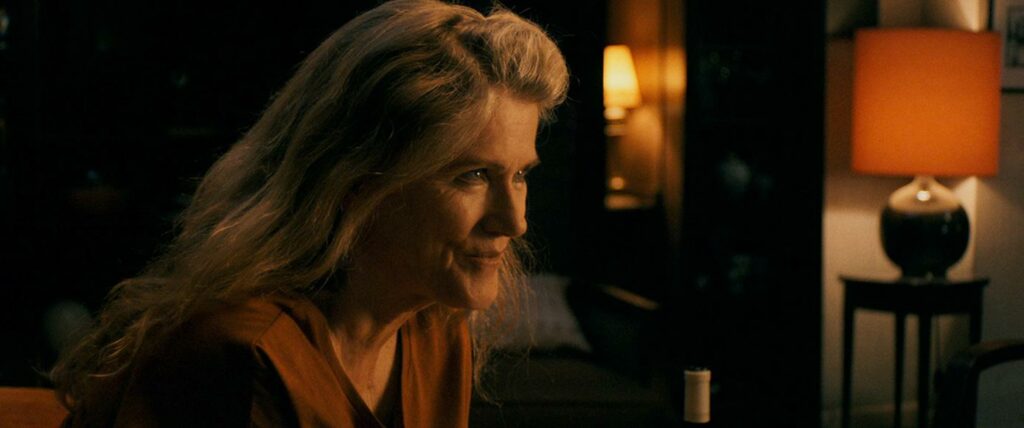
In her new film Two Of Us (released in France as Deux) Sukowa plays Nina, a septuagenarian who for years has been in a secret relationship with her next-door neighbour Madeleine (Martine Chevallier). When Madeleine’s health suddenly deteriorates – leaving her without speech and dependent on a carer – Nina finds herself having to desperately scheme her way back into her lover’s life, all the while avoiding the suspicions of Madeleine’s two adult children.
Though somewhat deceptively packaged as a more low-key outing for the actress, Two Of Us supplies Sukowa with a role that demands passion and vulnerability, ferocity and warmth – it’s a fantastic performance that again demonstrates why she remains such a beloved figure in the world of international cinema. Ahead of the film’s UK release, we spoke to Sukowa about preparing for the role, judging our parents, and the desire to push herself in her craft.
How did you initially get involved with the film?
Barbara Sukowa: The director Filippo Meneghetti sent me a script which I thought was well written, and I then met him and felt that he was very passionate about this film. I thought it was interesting that it was a film about two gay women who were not young and beautiful, but were older. It was also interesting to see this subject through the eyes of a young man.
The obvious appeal of the film is the romance between your character Nina and Madeleine, played by Martine Chevalier. Can you tell me a bit about working with her and how you went about making that relationship feel authentic?
Barbara Sukowa: We’re both actresses with long careers and experience, so we act! We met for the first time at a dinner in Paris that Filippo Meneghetti arranged. We knew we weren’t going to have any rehearsals. So we had to talk to each other a lot during this dinner and really open up about our lives – our love lives – and discuss the script. I mean, this is not something you do when you usually meet somebody for the first time, right? You don’t open up about your life, and especially your intimate life, in that way. But we both felt we kind of had to in order to bring some sort of intimacy between us.
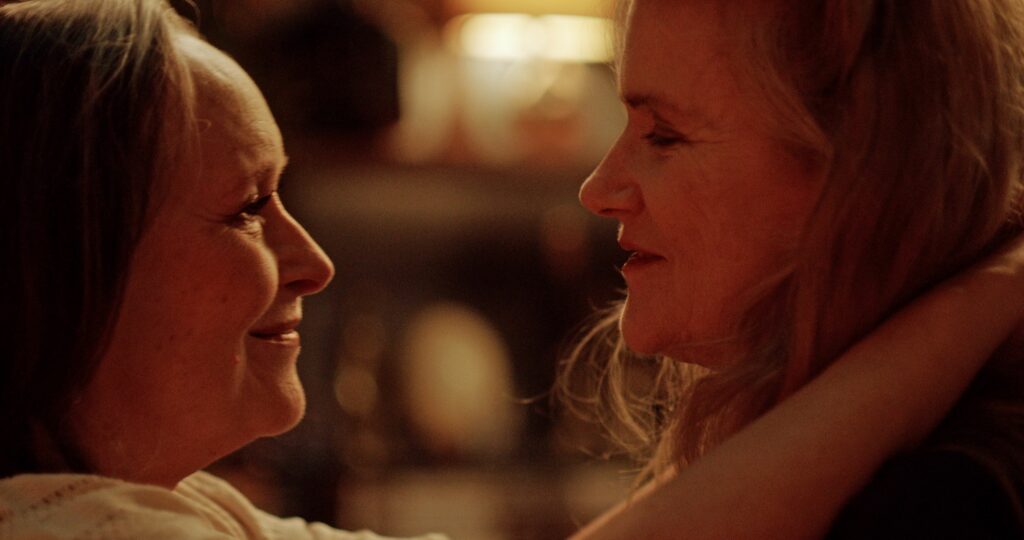
One thing that makes the chemistry between you so impressive is that, for two thirds of the movie, Madeleine isn’t able to speak. There are some beautiful moments in the film where Nina’s speaking with Madeleine and the only responses she gets are incredibly subtle. Did you find that challenging, having to act opposite someone who’s not actively responding?
Barbara Sukowa: You know what, it’s so strange – until I did press for the film and journalists asked me about it, I wasn’t even so aware of it because she has a very speaking face. So I didn’t feel that was a problem for me as an actress. It was a difficulty for the character, but it was not a difficulty for me as an actor.
But even the characters, they have known each other for such a long time. If you are in a relationship for almost 30 years, you don’t need really that many words to communicate with each other. You know, sometimes you see these older couples in a restaurant and you wonder, gee, they don’t talk each other at all, what’s their relationship like? Well, they know each other! They’ve talked about a lot of things, now they just enjoy eating together.
There’s an interesting question in the film about the degree of acceptance gay people are offered in contemporary France. There’s a fantastic scene in which your character asks a rather bemused estate agent whether he has a problem with elderly lesbians, and he says that of course he doesn’t; Nina’s trying to make the point that nobody cares these days. But of course Madeleine’s children do care, and take it out on Nina badly. Did you understand the characters’ reaction more as homophobia, or relating to the uncovering of this big secret, or a bit of both?
Barbara Sukowa: I do think that maybe this film would not have played as well if it was set in a big city like London, Paris, New York. It does play well in a small town in the South of France, probably a Catholic town. Also, I imagine that her daughter would not have a problem if one of her co-workers was gay, but there’s always something different with parents. I mean, the director Filippo actually told me a story about a friend that he had who’s a very liberal young man. And he has homosexual friends, but when he found out that his father was actually gay, he freaked out. So, we do judge our parents differently!
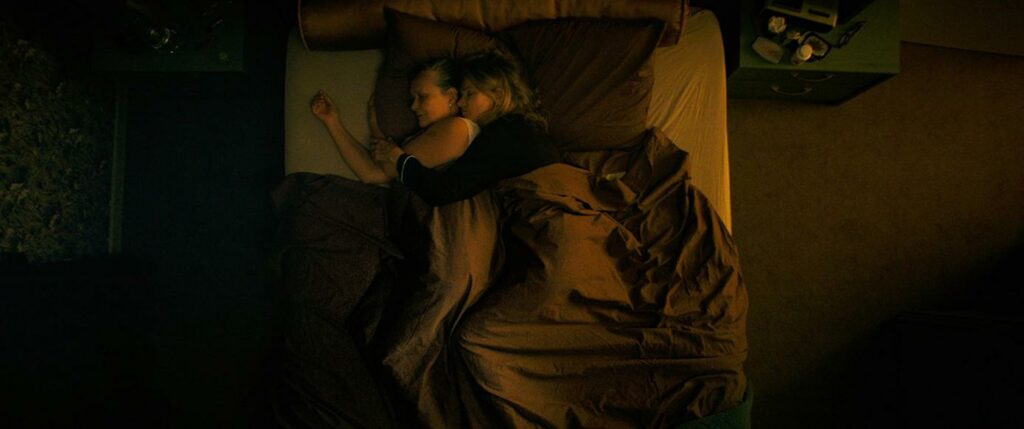
And also like you said, it’s the breach of trust. For Madeleine’s son it was probably very difficult to see his father being cuckolded, being betrayed in that way. And the daughter had this romantic idea that her father was the big love of her mother’s life. She liked that idea, and to find out that this was not the case is really the destruction of a dream.
We’re used to seeing these films about closeted love being hidden from parents, but not so much from children.
Barbara Sukowa: I think it’s also a film about family. We always focus very much on the two women, but it is really also a film about the kids.
You mentioned it earlier, that age plays a role in the story. Could you talk more about attitudes towards age, both in the film but then also in your experience as an actress?
Barbara Sukowa: I know that Filippo had difficulty funding a film with two older women. I think since there are now all these TV series, there are more possibilities for older women. But it’s not really yet accepted, older women and sex, or even older women and romance. It’s a long tradition in our culture. Beauty is so much connected with women. I mean, you don’t read about the rosy cheeks of a man, or the beautiful skin of a man – it’s always the woman. But when the rosy cheeks and the beautiful skin and all that goes away, then it seems that eroticism also falls out of the picture.
I think that is something that people are probably uncomfortable with, because the woman is also often the mother. There has always been, especially in Catholic countries, this division between the Madonna and the whore: the mother was the Madonna, which is basically sexless, and so sex is unconnected from the mother. I have three sons, and I remember that when my sons were younger and I would dance, it would horrify them – they didn’t like to see anything that could be remotely sexual! The film is really much more about love, it doesn’t focus so much on the sex, but it’s implied that these people are not celibate.
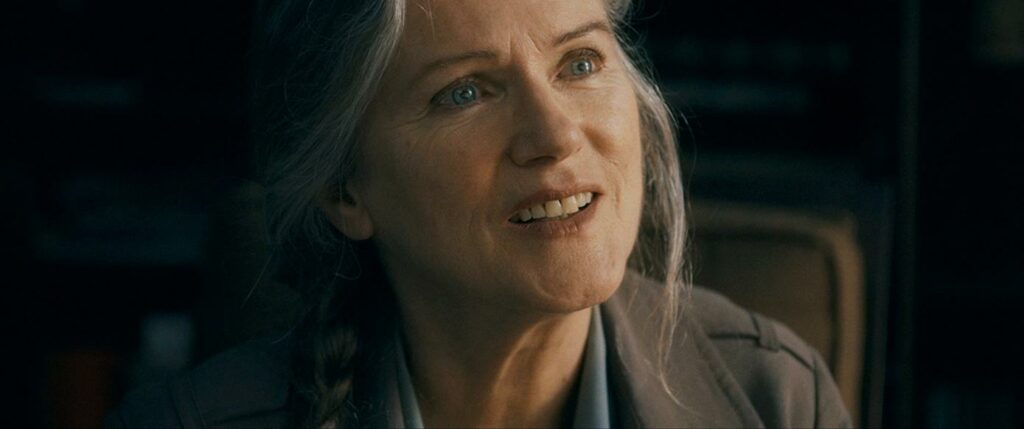
Out of the couple in the film, Madeleine is a bit gentler, certainly more unsure of herself, whereas Nina is determined to get what she wants – she’s desperate, but also cunning and passionate. You’ve obviously played some very different characters during your career, but to me what seems to connect some of your biggest roles is this sense of drive, of passion. Do you relate to characters that feel things in a big way?
Barbara Sukowa: I guess that’s how I get cast. Filippo wanted contrast between the two characters and he felt that Martine and I are very different. You always think that Nina is the strong one and that Madeleine is the sensitive one. But I have felt in my life, if you are strong and if you are passionate, you are much more vulnerable. We usually don’t see that. Because if you are strong, you make decisions, you take risks. And taking risks puts you in a very vulnerable position. You can fall and be rejected. I think Nina is more daring in that way.
She’s got a warmth about her, as well.
Barbara Sukowa: Yeah, she loves! I mean she really loves. Madeleine is Nina’s whole life. Whereas Madeleine has a family, she has children, she had a husband, we know very little about Nina. We don’t know whether she was always gay. I know women now who are my age and who had straight families before, and who have realised they are gay – or, rather, maybe they’ve always been gay, but they’re now able to live a gay lifestyle. And so we don’t know much about Nina, but if you see her apartment, you see that it’s pretty basic. It’s like a waiting room for something. She’s completely focused on her love with Madeleine.
The film premiered at Toronto in 2019, and since then things have changed a little, to put it mildly. What has been your experience of the pandemic with regard to film in particular?
Barbara Sukowa: I think it’s been very difficult for a lot of filmmakers. You have young directors, like Filippo Meneghetti, who are starting out and who want to be validated and want to have good numbers with their movies, and then those movies are not shown. Or you have a movie theatre which can only be half full. It’s really hard, especially if you’re starting your career. For me, it’s different. I’ve had a career.
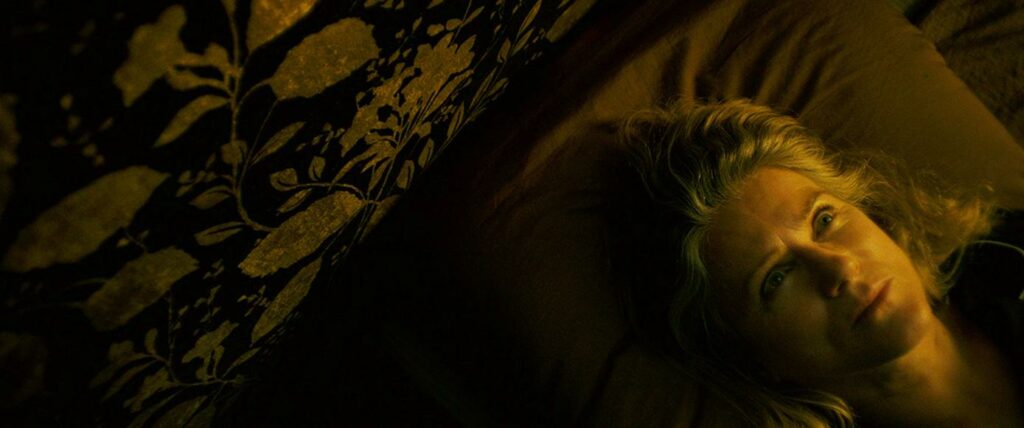
It’s great that we have a release in England now and we have one in Italy. Still, not everybody goes to the movies now. We are still kind of half closed. It’s better than nothing, but it would probably be better if the film came out later. A lot of people have gotten so used to sitting in their homes and watching Netflix on their TVs. Does that mean now that they’ll all run to the to the cinema or does it mean they won’t? I don’t know, we will see how that plays out in numbers.
Over the course of your career, you’ve worked with so many fantastic filmmakers and actors. What still excites you about making films?
Barbara Sukowa: I was incredibly lucky in my career that I have worked with really wonderful actors – other people who are seriously interested in the creative process. I mean, I have not worked much with people who are just looking for celebrity. I’m always interested in something that I haven’t done before, like when I was just in London to play Gala [Dalí, in Mary Harron’s upcoming Dalí Land]. It’s such a different role, so that is interesting for me. How I can still expand? Can I, or can I not?
I love filmmaking. There are so many more people than you are aware of. Often you talk about the actors or directors – but, for example, all the film editors are doing such incredible work today. You don’t know anything about all these wonderful people who are on the film set and who support you and make it happen. It’s just an environment that I really love.
Two of Us releases in UK cinemas and on digital July 16th.
